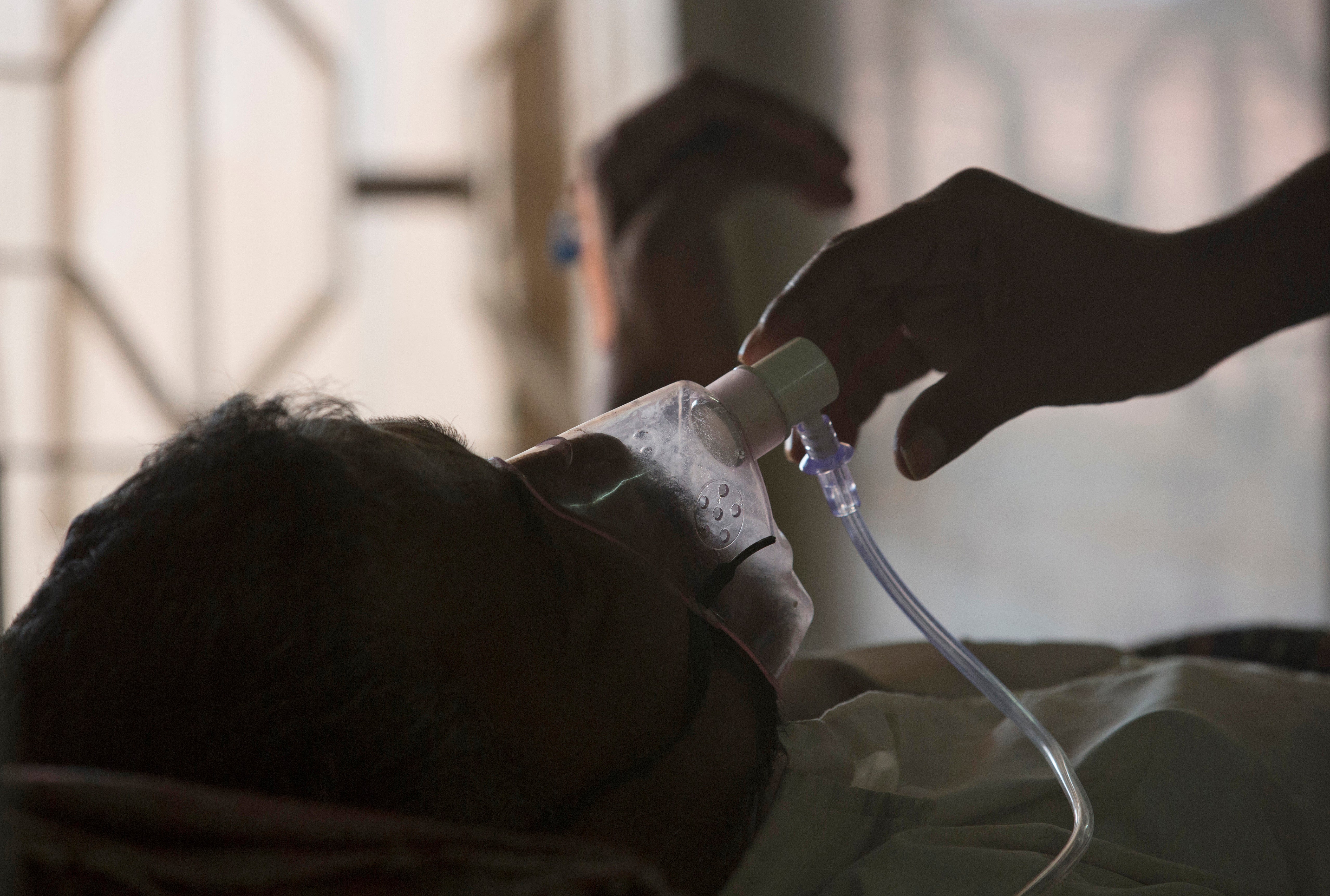Tuberculosis deaths rise for 1st time in years, due to COVID
The number of people killed by tuberculosis has risen for the first time in more than a decade, largely because fewer people have got tested and treated as resources have been diverted to fight the coronavirus pandemic, the World Health Organization said Thursday

Your support helps us to tell the story
From reproductive rights to climate change to Big Tech, The Independent is on the ground when the story is developing. Whether it's investigating the financials of Elon Musk's pro-Trump PAC or producing our latest documentary, 'The A Word', which shines a light on the American women fighting for reproductive rights, we know how important it is to parse out the facts from the messaging.
At such a critical moment in US history, we need reporters on the ground. Your donation allows us to keep sending journalists to speak to both sides of the story.
The Independent is trusted by Americans across the entire political spectrum. And unlike many other quality news outlets, we choose not to lock Americans out of our reporting and analysis with paywalls. We believe quality journalism should be available to everyone, paid for by those who can afford it.
Your support makes all the difference.The number of people killed by tuberculosis has risen for the first time in more than a decade, largely because fewer people got tested and treated as resources were diverted to fight the coronavirus pandemic, the World Health Organization said.
In its yearly report on TB released on Thursday, the U.N. health agency said 1.5 million people worldwide died of the bacterial disease last year, a slight rise from the 1.4 million deaths in 2019. Evidence of the ancient disease has been found in Egyptian mummies and it's believed to have killed more people in history than any other infectious illness; TB routinely kills more people every year than AIDS and malaria.
The WHO also said far fewer people were newly diagnosed with TB in 2020; 5.8 million versus 7.1 million in 2019. The agency also estimates that about 4 million people suffer from TB but have yet to be diagnosed, a rise from 2.9 million people the previous year.
The disease is caused by a bacterium that often infects the lungs and is highly transmissible when those sickened by it cough or sneeze. About one quarter of the world’s population has a latent TB infection, meaning they carry the bacterium, but haven’t become ill and can’t transmit it. Those who harbor the bacterium have a 5 to 10% chance of eventually developing TB.
The disease is treatable if caught early, but drug-resistant versions have complicated treatment efforts and scientists are increasingly worried the bacterium will soon outpace available medicines. The countries with the highest numbers of TB cases include India, China, Indonesia, the Philippines, Nigeria Bangladesh and South Africa.
“We cannot accept that year after year, 1.5 million people die from the curable disease TB because they do not have access to the diagnostics and drugs that can save their lives,” said Stijn Deborggraev, diagnostics adviser for Doctors Without Borders’ Access campaign. In a statement, Deborggraev said access to testing was limited in many countries with high numbers of TB patients because they depend on tests made by the American company Cepheid, which he claimed was overcharging poorer countries for their tests.
He said Cepheid had received more than $250 million in public investment to develop its TB testing technology and has failed to make it accessible to those who need it most.
The company says they have made their test cartridges available to poorer countries “at low margin” and says they are “an active participant in the global fight against TB.”
The WHO noted that global investment into TB efforts had dropped and said global efforts to meet targets in reducing the numbers of people affected by the disease “appear increasingly out of reach.”